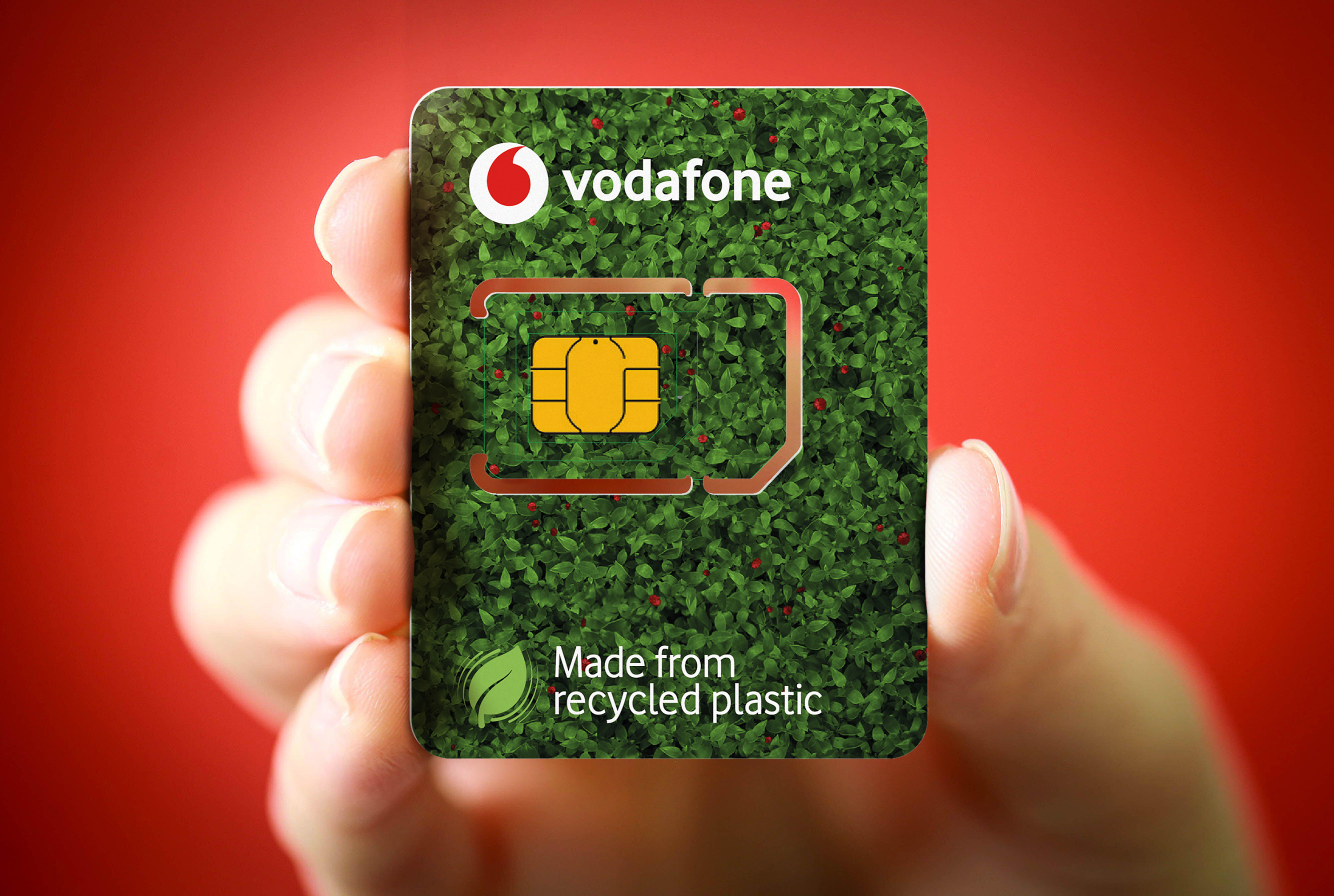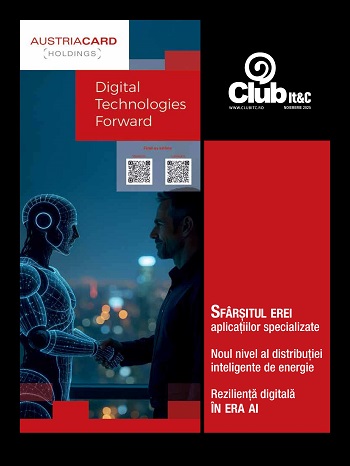Vodafone is launching Eco-SIM cards made from recycled plastic as part of the company’s commitment to reduce its impact on the environment.
 Starting from October 2021, Vodafone will provide customers with new Eco-SIMs in the half-sized format made from recycled plastic, progressively replacing SIM cards that are currently made from new plastic. Eco-SIM will be rolled out in all 12 of Vodafone’s European markets, in addition to Egypt, Turkey and South Africa.1 The Eco-SIMs will be available in Romania starting next year.
Starting from October 2021, Vodafone will provide customers with new Eco-SIMs in the half-sized format made from recycled plastic, progressively replacing SIM cards that are currently made from new plastic. Eco-SIM will be rolled out in all 12 of Vodafone’s European markets, in addition to Egypt, Turkey and South Africa.1 The Eco-SIMs will be available in Romania starting next year.
The launch of Eco-SIM builds on Vodafone’s successful global rollout of half-sized SIM card holders in 2020. By halving the size of the SIM card holder, Vodafone has reduced the amount of plastic used to provide customers with SIMs by around 340 tonnes a year – equivalent to a reduction of 1,760 tonnes of CO2e.
Vodafone’s introduction of Eco-SIM – in the same material-efficient, half-sized card format – further eliminates the need for 320 tonnes of virgin plastic to be manufactured each year. This has the potential to save an additional 1,280 tonnes of CO2e per year from not manufacturing new plastic to be used for the cards.
Alex Froment-Curtil, Vodafone Group Chief Commercial Officer said: “Our ultimate goal is to eliminate the need to supply plastic SIMs entirely. We have already halved the amount of plastic used in our SIM cards, and the introduction of Eco-SIMs made from recycled plastic will further reduce the environmental impact of our activities.”
Although Vodafone offers digital eSIM in every European market, supported by a growing number of compatible devices, most mobile customers still require a physical SIM card for their mobile phone until eSIM becomes more widespread.
Since 2020, Vodafone has eliminated all unnecessary plastic and disposable single-use items across all Vodafone’s retail stores and offices. Vodafone has withdrawn disposable plastic bags and removed or restricted plastic marketing or promotional materials, replacing them with low-impact alternatives.
Vodafone’s Planet actions
Vodafone continues to make significant progress towards ensuring the greening of the company’s own activities, whilst accelerating the role that Vodafone’s digital networks and technologies play in helping to address climate change.
Reducing carbon emissions and driving energy efficiency
In November 2020, Vodafone set an approved 2030 Science-Based Target in line with carbon reductions required to keep global warming to 1.5oc, becoming the first major telecoms operator to follow the emission reduction pathway developed for the ICT sector.
By 2030, Vodafone will eliminate all carbon emissions from its own activities and from energy it purchases and uses (Scope 1 and 2). Vodafone also pledged that by 2030 it will halve carbon emissions from Scope 3 sources, including joint ventures, all supply chain purchases, the use of products it has sold and business travel.
By 2040, Vodafone will have eliminated Scope 3 emissions completely – bringing forward by ten years Vodafone’s original 2050 ambition to reach ‘net zero’ across its full carbon footprint.
Vodafone is committed to purchasing all electricity from renewable sources. Vodafone’s entire European operations – including mobile and fixed networks, data centres, retail, and offices – are already 100% powered by electricity from renewables. Vodafone is now working to achieving the same step-change in Africa by 2025.
Vodafone continues to invest in energy efficiency and on-site renewable projects, included sourcing and deploying more efficient network equipment and decommissioning legacy equipment in its core network.
Enabling Vodafone customers to reduce their own emissions
Vodafone is committed to helping its business customers reduce their own carbon emissions by a cumulative total of 350 million tonnes globally over ten years between 2020 and 2030 – equivalent to Italy’s total annual carbon emissions for 2019.
Vodafone’s Internet of Things (IoT) services will deliver most of this saving for customers, improving the efficiency of their logistics and fleet management, smart meters, manufacturing, and other activities.
























